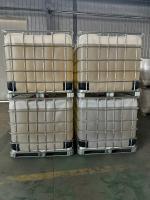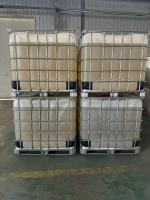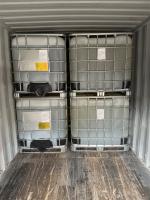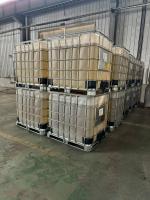Our Products
Product Center / polydadmac (FL4635 FL4440 FL4540)equivalent models of Chinafloc--dadmac

Polydadmac, short for poly(diallyldimethylammonium chloride), is a versatile cationic polymer widely used in various industries due to its unique chemical structure and functional properties. The polymer’s backbone, which is rich in positively charged quaternary ammonium groups, makes it an excellent flocculant, coagulant, and conditioning agent. Its ability to neutralize negatively charged particles has paved the way for its broad application across water treatment, wastewater management, papermaking, mining, and several other industrial processes. This article delves into the main applications of polydadmac, providing an in-depth exploration of its roles and benefits in different sectors.
Chemical Properties and Mechanism of Action
Before exploring its applications, it is essential to understand why polydadmac is so effective. Its molecular structure comprises repeating diallyldimethylammonium chloride units that impart a strong positive charge along the polymer chain. This cationic nature is responsible for its ability to interact with negatively charged particles, such as suspended solids, colloidal clays, and organic matter. When added to a suspension, the positive charges on polydadmac attract and bind to negatively charged particles, neutralizing their surface charges and promoting aggregation into larger flocs. These flocs settle more rapidly, enabling efficient separation from the liquid phase.
Water Treatment Applications
One of the most prominent uses of polydadmac is in the treatment of water, both for potable use and industrial applications. Municipal water treatment plants rely on polydadmac to improve the clarity and quality of drinking water. In water treatment processes, polydadmac is primarily used as a coagulant aid. It enhances the aggregation of fine particles that are otherwise difficult to remove by traditional sedimentation or filtration processes. The polymer is effective in removing turbidity, color, and natural organic matter from water, thus ensuring that the treated water meets stringent safety and aesthetic standards.
In addition, polydadmac is used in the clarification of water in various industrial settings. For example, in cooling water systems and process water treatment, its ability to flocculate suspended solids minimizes fouling and scaling on equipment, leading to improved operational efficiency and reduced maintenance costs.
Wastewater Treatment and Sludge Management
Polydadmac’s application in wastewater treatment is equally significant. Industrial wastewater, municipal sewage, and agricultural runoff often contain a high concentration of suspended solids, colloidal particles, and dissolved organic compounds. The cationic nature of polydadmac makes it highly effective at aggregating these contaminants into larger flocs, which can then be removed by sedimentation, flotation, or filtration. This process not only clarifies the water but also reduces the load on subsequent biological treatment processes.
A major benefit of using polydadmac in wastewater treatment is its impact on sludge dewatering. After the primary separation process, the remaining sludge can be challenging to handle due to its high water content. When polydadmac is added, it facilitates the formation of larger, denser flocs that are easier to dewater using mechanical processes such as centrifugation or belt filter presses. This reduction in water content not only lowers disposal costs but also enhances the efficiency of sludge management practices.
Papermaking and Pulp Processing
The papermaking industry is another key area where polydadmac finds extensive application. In the papermaking process, the quality of the paper is highly dependent on the retention of fine fibers and fillers. Polydadmac serves as a retention aid and a drainage aid in paper pulp processing. Its cationic properties help in binding the negatively charged fibers and fillers, thus increasing the retention rate on the paper machine. This results in improved paper quality, enhanced strength properties, and reduced waste of raw materials.
Moreover, the use of polydadmac in papermaking contributes to better dewatering during the formation of paper sheets. Effective dewatering is crucial as it impacts both the energy consumption and the speed of the drying process. By facilitating rapid water removal, polydadmac helps in achieving a more efficient manufacturing process and reduces overall production costs.
Mining and Mineral Processing
In the mining industry, polydadmac is utilized for its excellent flocculation capabilities during mineral processing and tailings management. In the process of extracting valuable minerals from ores, fine particles are generated that need to be efficiently separated from the liquid phase. Polydadmac is added to mineral slurries to aggregate these fine particles, thereby enhancing sedimentation and clarifying the water used in the process. This not only aids in the recovery of valuable minerals but also ensures that the water can be recycled within the mining operations.
Tailings, the waste materials remaining after the extraction process, often contain residual fines and chemical additives. The application of polydadmac in tailings management improves the settling of these particles, thereby reducing the volume of water associated with the tailings. This contributes to safer tailings storage and minimizes environmental impacts by facilitating better water recycling and reducing the potential for contamination.
Applications in the Oil and Gas Industry
In the oil and gas industry, polydadmac plays a vital role in drilling operations and produced water treatment. Drilling fluids, or muds, are essential for lubricating drill bits and stabilizing boreholes. The presence of fine particulate matter in these fluids can affect their performance. By adding polydadmac, the flocculation of these particles is enhanced, resulting in a more stable drilling fluid with improved viscosity and reduced filtration loss.
Furthermore, produced water—water that is brought to the surface during oil and gas extraction—often contains a mix of oil, fine solids, and chemical additives. The use of polydadmac in treating produced water facilitates the separation of oil and suspended solids from water, allowing for more efficient water recycling and reducing environmental hazards associated with discharge.
Textile and Other Industrial Applications
Polydadmac is also valued in the textile industry, where it is employed as a fabric softener and antistatic agent. Its ability to form a thin, uniform coating on fibers improves the texture and appearance of fabrics while minimizing static buildup. Additionally, in industrial processes where the control of particle dispersion is critical, polydadmac is used to modify the rheological properties of suspensions, ensuring consistency and stability in various formulations.
Environmental and Economic Benefits
The broad spectrum of applications for polydadmac translates into significant environmental and economic benefits. By improving the efficiency of water and wastewater treatment processes, polydadmac helps reduce the overall energy consumption and chemical usage associated with these operations. This not only lowers operational costs but also minimizes the environmental footprint of industrial activities. In the case of sludge management, enhanced dewatering reduces the volume of waste that needs to be handled, thereby decreasing disposal costs and mitigating potential environmental hazards.
In papermaking and mining, the improved retention and dewatering capabilities provided by polydadmac lead to a reduction in raw material waste and increased process efficiency. These improvements contribute to a more sustainable use of resources and support the overall economic viability of these industries.
Future Prospects and Conclusion
As industries continue to evolve with an increasing focus on sustainability and efficiency, the applications of polydadmac are expected to expand further. Ongoing research is exploring modifications and formulations that can enhance its performance under various conditions, such as extreme pH or high ionic strength environments. Innovations in polymer chemistry are likely to yield new derivatives of polydadmac tailored to specific industrial needs, thereby broadening its utility across different sectors.
In conclusion, the main applications of polydadmac span a wide range of industries, with its most significant roles found in water treatment, wastewater management, papermaking, mining, oil and gas production, and textile processing. Its effectiveness as a cationic polymer, owing to its ability to neutralize and aggregate negatively charged particles, has made it an indispensable additive in processes where flocculation, dewatering, and retention are critical. The environmental and economic advantages conferred by its use further underscore its importance, positioning polydadmac as a key player in efforts to achieve sustainable and efficient industrial practices. As technology and research progress, the versatility and application range of polydadmac are poised to grow even further, ensuring its continued relevance in modern industrial operations.





